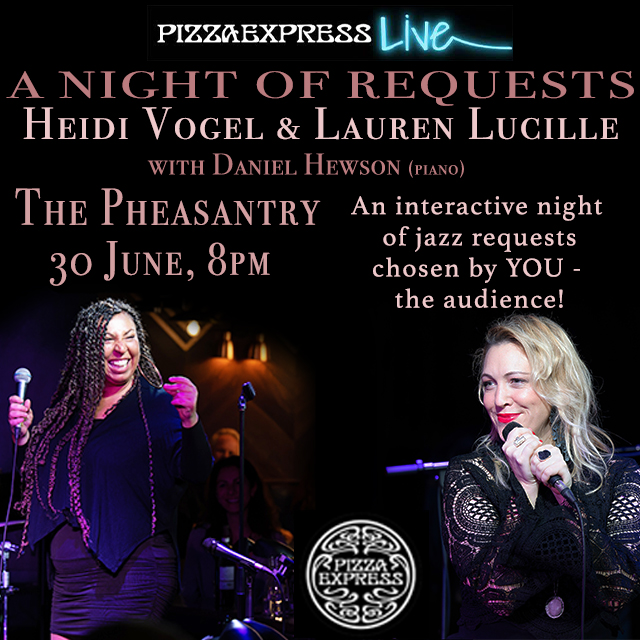Trish Clowes & Ross Stanley: Journey to Where
(Stoney Lane Records, SLR1989. Album review by Julian Maynard-Smith)

Saxophonist and composer Trish Clowes (pronounced ‘clues’) is principally a jazz musician, but her music often dances in the liminal space between classical and jazz. Her debut album Tangent (2010) featured her compositions for full orchestra, sextet, and guests including the renowned pianist Gwilym Simcock; and Pocket Compass (2014) featured the BBC Concert Orchestra.
Journey to Where takes further steps into the jazz/classical realm but on an intimate scale, featuring just two members of Clowes’s regular quartet MY IRIS: Clowes herself on tenor saxophone, and Ross Stanley on piano. Think lieder with the saxophone as voice, crossed with great jazz saxophone/piano recordings such as Stan Getz and Kenny Barron’s elegiac People Time (1991).
The many years that Clowes and Stanley have recorded together – the first time was on My Iris (2017) – really show in their empathic interplay, two equals rather than merely voice and accompanist. The album’s also enhanced by having been recorded in an empty Wigmore Hall, a venue whose churchlike acoustics are perfect for unamplified chamber music such as this. (It’s little wonder that Wigmore Hall is a perennial favourite for BBC Radio 3 recordings.)
Not yet a subscriber of our Wednesday Breakfast Headlines?
Join the mailing list for a weekly roundup of Jazz News.
Stanley was an organ scholar at Marlborough College, and the album’s classical side is perhaps most evident on his choice of two organ works. ‘Gloucester Service’, by Herbert Howells, starts off stately and hymn-like before breaking into cheerful solos from Clowes and Stanley. ‘Trois Preludes et Fugues, Op 3, Prelude in G Minor’ by Marcel Dupré is transformed by being played on piano rather than organ: fluttering and aerial, it reminded me of ‘The Snow is Dancing’ from Debussy’s Children’s Corner suite. Clowes subtly outlines the harmony with long notes before playing a jazz-inflected solo, then adopting similar fluttering motifs to the piano. These graceful handovers between classical and jazz also remind us that church organ music is often improvised.
Balancing these two classical pieces are two jazz standards. The first is ‘Tres Palabras’ (aka ‘Without You’) by Cuban composer Osvaldo Farrés, which has been covered dozens of times (132 extant recorded versions are listed on secondhandsongs.com), including a lovely bossa version by Coleman Hawkins with Kenny Burrell, and a lengthy big-band version fronted by Joe Henderson. Clowes and Stanley’s interpretation brings out the yearning quality of the original lyrics, sounding close to Getz/Barron on People Time. Clowes has a tone very much her own, but on this track in particular it acquires a buttery softness reminiscent of Henderson and Getz at their gentlest. The second jazz standard is Duke Ellington’s ‘Prelude to a Kiss’. Clowes starts with a sparse sketch of the melody that gradually takes shape: a clever approach that avoids cliché and overfamiliarity.
Clowes and Stanley contribute two compositions apiece. The first from Clowes is ‘Decently Ripped’, a boppish, intricately woven and playful number inspired by Wayne Shorter’s improvising on the jazz standard ‘Just in Time’ that Clowes discovered on a 1965 bootleg recording at the Village Vanguard. Her second contribution is ‘Sarah’, named after the vaccinologist Sarah Gilbert. At 09:28, it’s by far the longest piece on the album and starts with multiphonic growls on saxophone and sombre, almost funereal piano before blossoming into an extended improvisation that feels increasingly optimistic – perhaps a musical analogue for the emergence of hope after the long, dark days of Covid.
The first of Stanley’s contributions is ‘Ashford Days’, a bucolic and cheerful tune dedicated to the jazz pianist John Taylor, whom Stanley cites as a major influence. The name of the tune is a nod to Taylor’s ‘Ambleside Days’ and the fact that Taylor lived for a while in Ashford. Stanley’s second contribution is ‘Avoidance’, another good-natured tune full of cheer and bounce.
The final piece of the set is the traditional Irish ballad ‘The Month of January’, whose lyrics tell a tale of lost love and regret in a winter setting (first stanza: ‘It was in the month of January, the hills all clad with snow / It was over hills and valley my true love he did go / It was then I met a pretty young girl with a salt tear in her eye / She had a baby in her arms and bitter she did cry’). Both musicians’ ability to paint in sound is remarkable: even before knowing the lyrics, I felt frost and sadness in the multiphonics and breathy long notes from Clowes, and snow flurries from Stanley’s sparkling pointillism. It provides a haunting end to a beautiful album.
LINK: Live review of album launch at Wigmore Hall by Tony Dudley-Evans
Journey... on Bandcamp
Categories: Album reviews, Reviews












Recent Comments